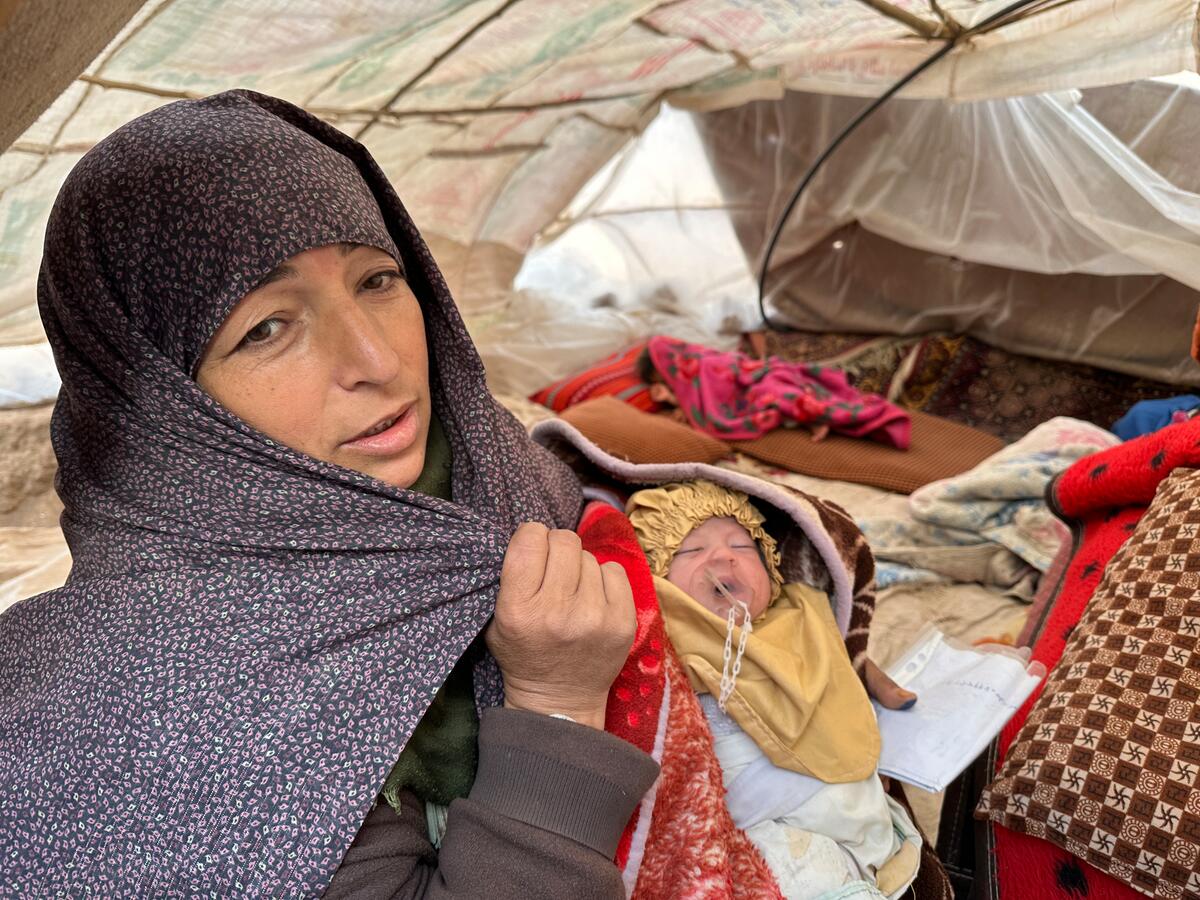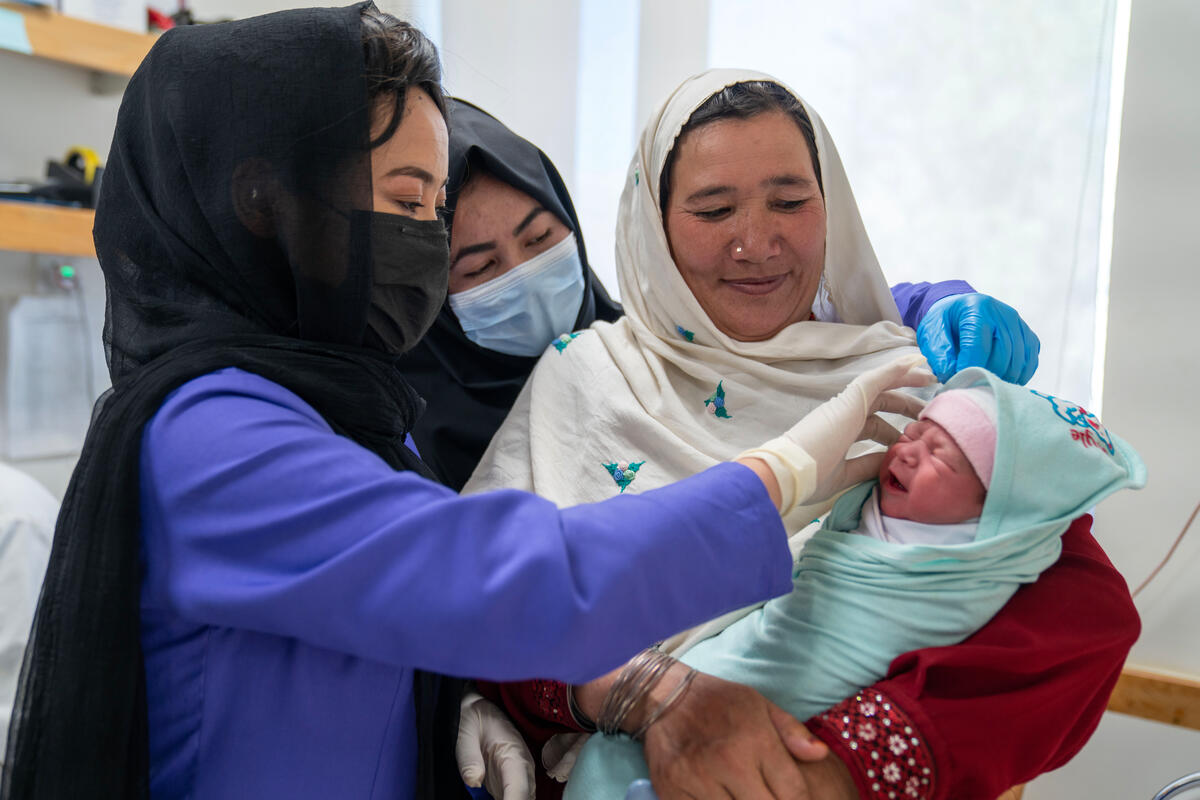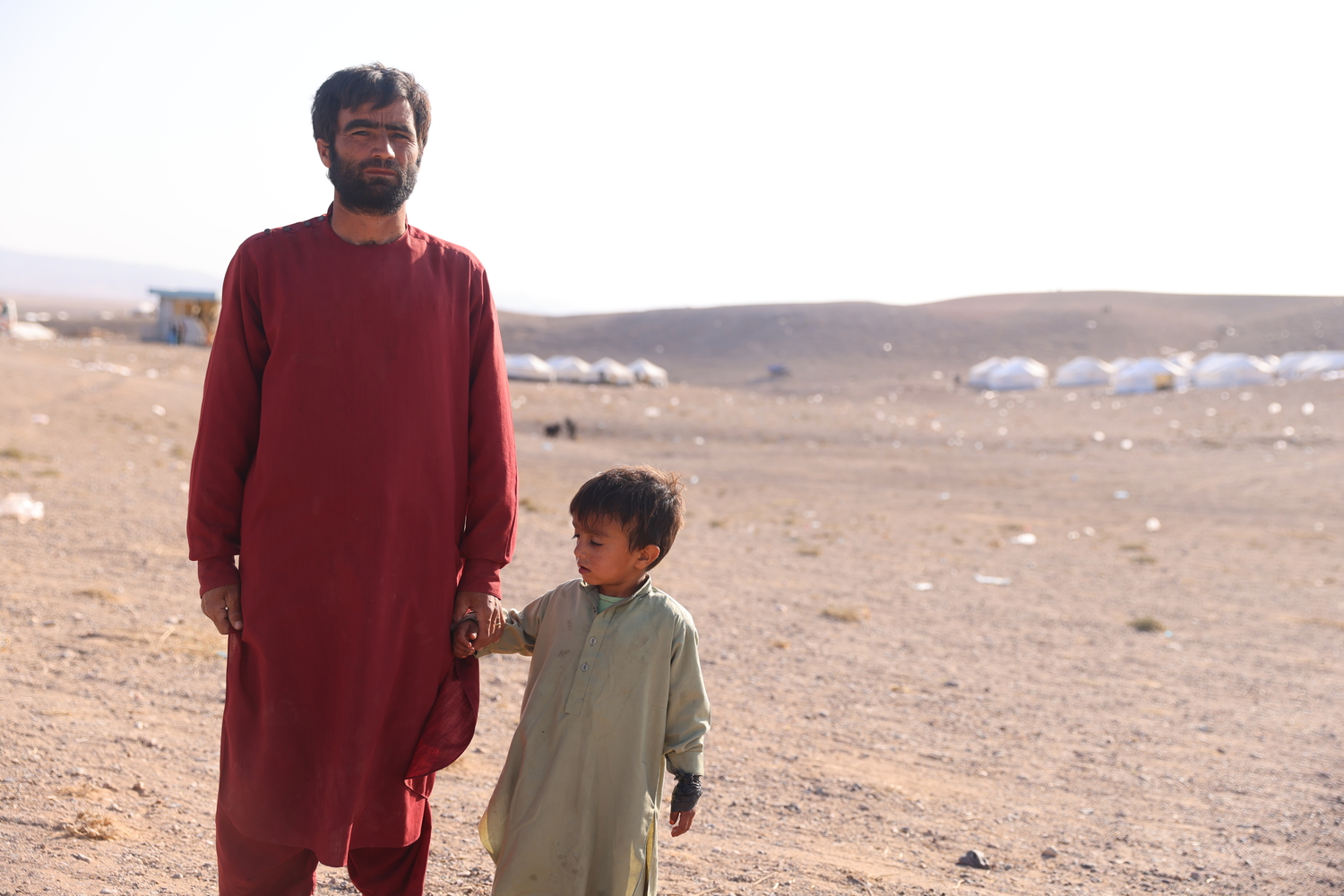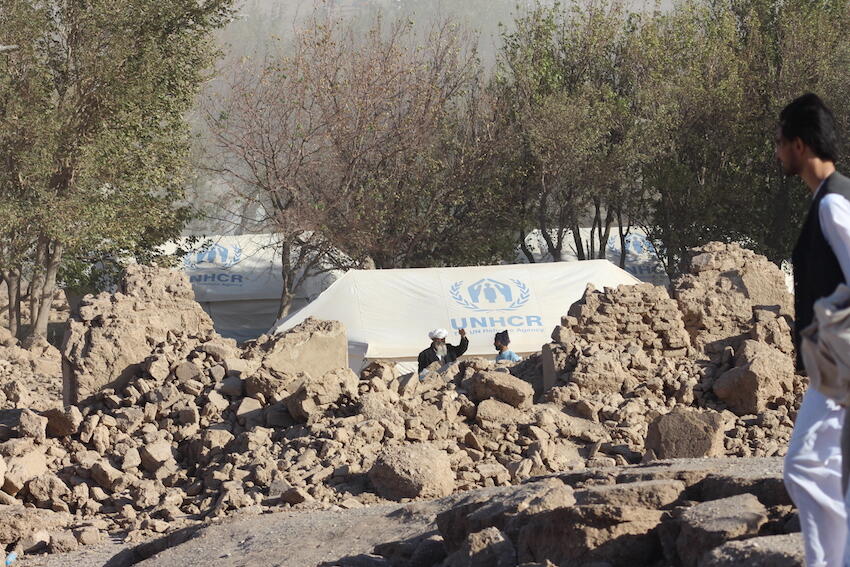Returns to Afghanistan this year top 400,000
Returns to Afghanistan this year top 400,000
The number of Afghan refugees assisted in returning home this year has topped 400,000, and now stands at just under 3.5 million since 2002. Including those who have returned without UNHCR assistance, the overall total has now reached 4.2 million. The Afghan repatriation, now in its fourth year, is the biggest organized repatriation operation globally in 2005, and, taken in its entirety, is easily the largest such operation in history.
By yesterday, following the resumption of the repatriation operation which had been suspended during the Afghan election period, the number of Afghans going home with UNHCR assistance in 2005 had reached 415,512. Of these, 365,575 have come back from Pakistan and a further 49,025 from Iran.
Since UNHCR's repatriation programme began in 2002, after the fall of the Taliban regime, a total of 2.9 million Afghans have returned from Pakistan and 1.3 million from Iran. A census of Afghans living in Pakistan, conducted earlier this year, showed that some three million remain in the country - or triple the number remaining in Iran, which is estimated to be around 900,000.
The decision by the Government of Pakistan to close all refugee camps in the Federally Administered Tribal Areas (FATA) has triggered a sharp increase in the number of Afghans opting to return. The most recent closures affected more than 100,000 people. The majority have chosen to repatriate with UNHCR assistance, while others accepted the Pakistan government's offer of relocation to another existing camps. The order to close the camps was given on security grounds. Most of the returns have been to Afghanistan's eastern provinces of Paktya, Khost and Nangarhar.
The return of the former FATA camp residents over a brief, five-week period has put UNHCR's reintegration operations within Afghanistan under significant pressure. Together with the relevant government ministries, other UN agencies and non-governmental organizations, UNHCR is working to ensure that families and individuals are able to settle into their places of origin before winter sets in.
Many of the families are returning to areas where there has been limited development due to the security situation. There are also a large number of people who left Afghanistan 25 years ago and who face all sorts of challenges in reintegrating into their former communities.
Under UNHCR's repatriation programme, each returning Afghan is eligible for transport assistance ranging from $4 to $37, depending on the distance to their destination. They also receive a grant of $12 each to help with additional costs.
The return assistance is complemented by programmes designed to help former refugees resume their lives in their original communities.
In all, UNHCR this year will help build or repair more than 24,000 returnee homes across Afghanistan. Short-term employment as well as skills training is being provided to vulnerable individuals as part of UNHCR's income generation activities. Water points which will benefit some 65,000 individuals are being dug, while co-existence programmes are underway in an attempt to ensure that tensions within communities are resolved peacefully.








